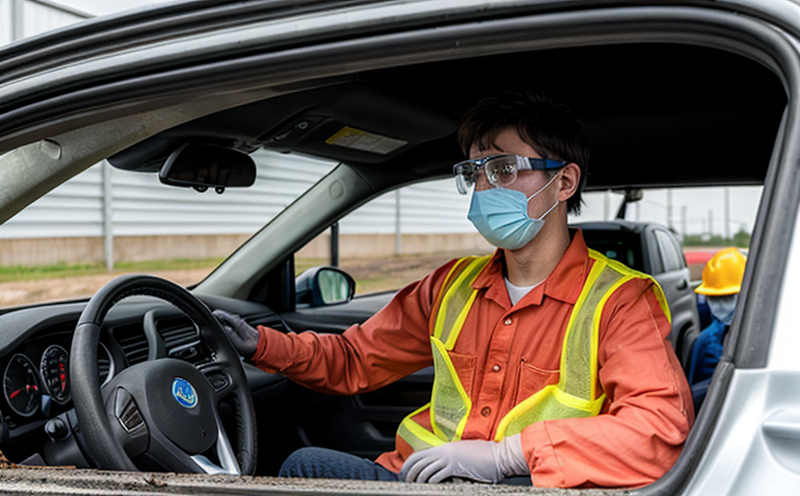
-
Chemical Safety and Certification-
Chemical Safety in Automotive Manufacturing-
Worker Training on Chemical Safety in Automotive
We provide comprehensive solutions designed to help our clients mitigate risks, enhance performance, and excel in key areas such as quality, health & safety, environmental sustainability, and social responsibility.
Discover
For many years, our organization has been operating successfully, boasting modern laboratories that meet international standards. These laboratories are equipped with the latest technology devices and equipment, and we have built a strong team of experienced and trained personnel to operate them.
DiscoverWelcome to Eurolab, your partner in pioneering solutions that encompass every facet of life. We are committed to delivering comprehensive Assurance, Testing, Inspection, and Certification services, empowering our global clientele with the ultimate confidence in their products and processes.
Discover
-
Chemical Safety and Certification-
Chemical Safety in Automotive Manufacturing-
Worker Training on Chemical Safety in AutomotiveIn the automotive industry, where the use of hazardous chemicals is prevalent in processes such as painting, lubrication, and vehicle assembly, ensuring the safety of workers is of paramount importance. Comprehensive training on chemical safety is critical to reduce accidents, exposure to toxic substances, and potential long-term health issues. By providing proper training, automotive manufacturers can foster a culture of safety, ensure compliance with regulations, and protect both workers and the environment.
Proper training ensures that workers are knowledgeable about the chemicals they handle, how to protect themselves, and what procedures to follow in the event of a chemical spill or accident. It also helps businesses comply with workplace safety regulations and environmental standards, reducing risks and liabilities. Training programs can cover a wide range of topics, from basic chemical safety to advanced emergency response strategies.
1. Understanding Chemical Hazards
2. Personal Protective Equipment (PPE)
3. Safe Handling and Storage of Chemicals
4. Chemical Spill and Emergency Response
5. Risk Assessment and Hazard Communication
6. Environmental Impact of Chemical Use
1. In-Classroom Training
2. Hands-On Training
3. Online and E-Learning Modules
4. Safety Drills and Simulations
5. Refresher Training
1. Reducing Workplace Injuries and Illnesses
2. Ensuring Regulatory Compliance
3. Enhancing Worker Productivity
4. Promoting a Safety Culture
5. Protecting the Environment
1. What should be included in chemical safety training for automotive workers?
2. How often should chemical safety training be conducted?
3. Can training be done online?
4. What are the benefits of hands-on chemical safety training?
5. How does chemical safety training protect the environment?
Training workers on chemical safety in the automotive industry is a vital aspect of maintaining a safe, efficient, and environmentally responsible workplace. By covering essential topics such as chemical hazards, proper PPE use, emergency response, and environmental impact, companies can ensure that their workers are well-prepared to handle chemicals safely. This not only improves worker health and safety but also helps manufacturers meet regulatory requirements and enhance their corporate reputation.

Trade and Government Regulations
Trade and government regulations play a vital role in shaping the global economy. These regulations ...

Electrical and Electromagnetic Testing
Electrical and Electromagnetic Testing: A Comprehensive Guide Introduction Electrical and electrom...

Battery Testing and Safety
Battery Testing and Safety: A Comprehensive Guide As technology continues to advance, battery-power...

Pharmaceutical Compliance
Pharmaceutical compliance refers to the adherence of pharmaceutical companies and organizations to l...

Environmental Impact Assessment
Environmental Impact Assessment: A Comprehensive Guide Environmental Impact Assessment (EIA) is a c...

Automotive Compliance and Certification
Automotive Compliance and Certification: Ensuring Safety and Efficiency The automotive industry is ...

MDR Testing and Compliance
MDR Testing and Compliance: A Comprehensive Guide The Medical Device Regulation (MDR) is a comprehe...

Consumer Product Safety
Consumer Product Safety: Protecting Consumers from Harmful Products As a consumer, you have the rig...

Railway Industry Compliance
Railway Industry Compliance: Ensuring Safety and Efficiency The railway industry is a critical comp...

Cosmetic Product Testing
The Complex World of Cosmetic Product Testing The cosmetics industry is a multi-billion-dollar ma...

Military Equipment Standards
Military Equipment Standards: Ensuring Effectiveness and Safety The use of military equipment is a ...

IT and Data Center Certification
IT and Data Center Certification: Understanding the Importance and Benefits The field of Informatio...

Food Safety and Testing
Food Safety and Testing: Ensuring the Quality of Our Food As consumers, we expect our food to be sa...

Aviation and Aerospace Testing
Aviation and Aerospace Testing: Ensuring Safety and Efficiency The aviation and aerospace industr...

Environmental Simulation Testing
Environmental Simulation Testing: A Comprehensive Guide In todays world, where technology is rapidl...

Agricultural Equipment Certification
Agricultural equipment certification is a process that ensures agricultural machinery meets specific...

Pressure Vessels and Installations Testing
Pressure Vessels and Installations Testing Pressure vessels are a critical component of various ind...

Industrial Equipment Certification
Industrial equipment certification is a critical process that ensures industrial equipment meets spe...

Transportation and Logistics Certification
Transportation and Logistics Certification: A Comprehensive Guide The transportation and logistics ...

Hospitality and Tourism Certification
Hospitality and Tourism Certification: Unlocking Opportunities in the Industry The hospitality and ...

Electromechanical Safety Certification
Electromechanical Safety Certification: Ensuring Compliance and Protecting Lives In todays intercon...

Healthcare and Medical Devices
The Evolution of Healthcare and Medical Devices: Trends, Innovations, and Challenges The healthcare...

Lighting and Optical Device Testing
Lighting and Optical Device Testing: Ensuring Performance and Safety Lighting and optical devices a...

Fire Safety and Prevention Standards
Fire Safety and Prevention Standards: Protecting Lives and Property Fire safety and prevention stan...

Chemical Safety and Certification
Chemical safety and certification are critical in ensuring the safe management of products and proce...

Product and Retail Standards
Product and Retail Standards: Ensuring Quality and Safety for Consumers In todays competitive marke...

Energy and Sustainability Standards
In today’s rapidly evolving world, businesses face increasing pressure to meet global energy a...

Renewable Energy Testing and Standards
Renewable Energy Testing and Standards: Ensuring a Sustainable Future The world is rapidly transiti...

NEBS and Telecommunication Standards
Network Equipment Building System (NEBS) and Telecommunication Standards The Network Equipment Bu...

Construction and Engineering Compliance
Construction and Engineering Compliance: Ensuring Safety, Quality, and Regulatory Adherence In the ...